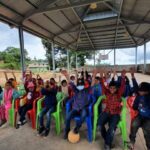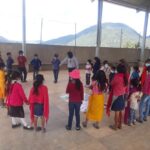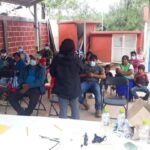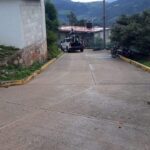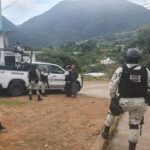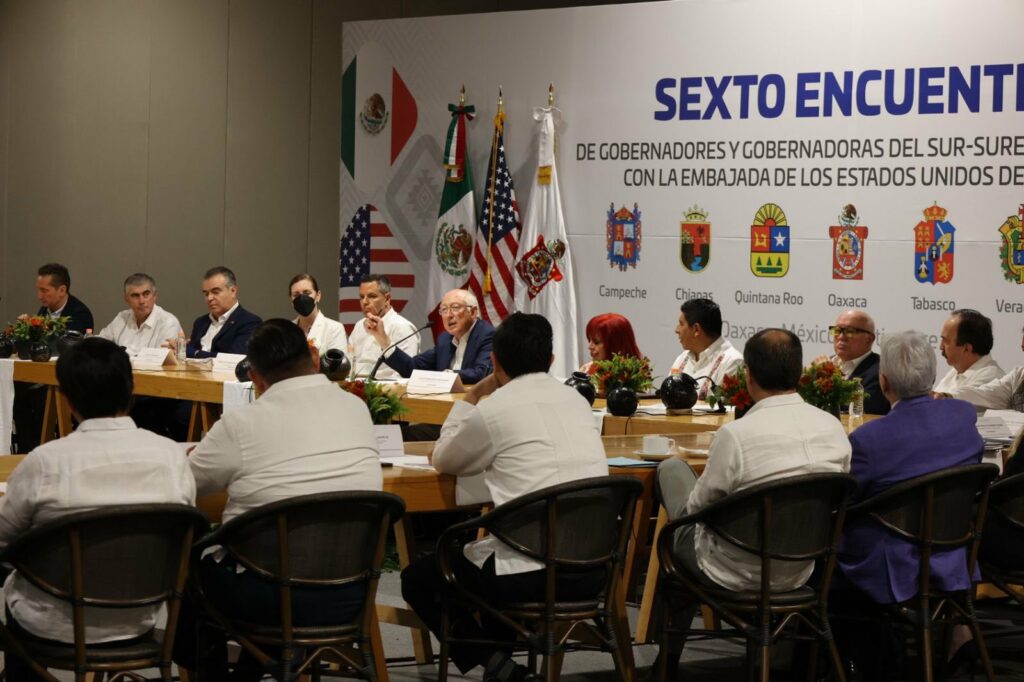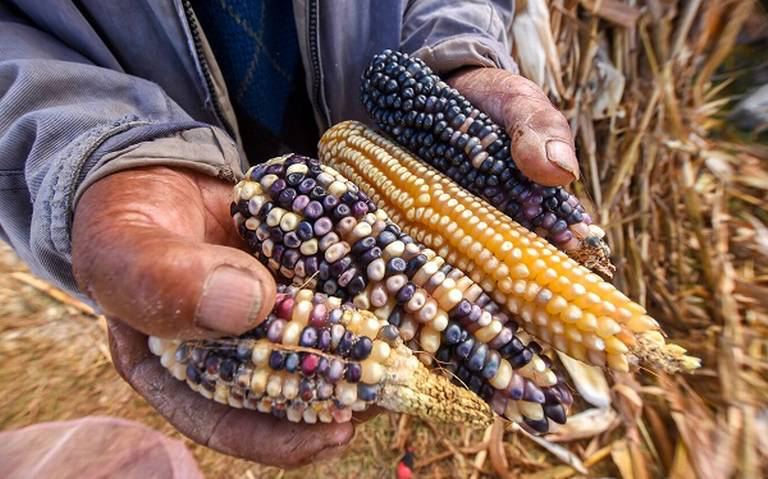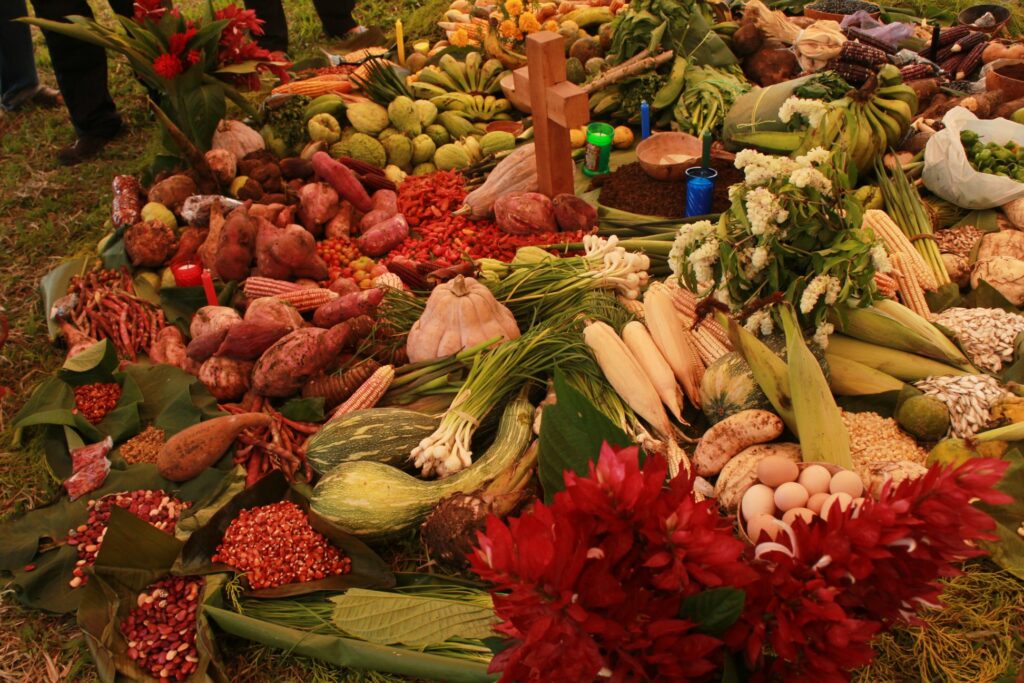
megaprojects
(Español) No vamos a permitir que el robo de agua continúe en nuestros pueblos. ¡Ni extracción, ni distribución!
Al pueblo en general
A Los medios de comunicación
El pasado lunes 26 de septiembre de 2022, el presidente municipal de Juan C. Bonilla, José Cinto Bernal, hizo acto de presencia en las instalaciones que los pueblos cholultecas recuperamos el año pasado y convertimos en la Casa de los Pueblos, Altepelmecalli, en la comunidad de San Mateo Cuanalá, Juan C. Bonilla, Puebla, acudió para concretar otra traición: inaugurar una nueva etapa de despojo de agua en nuestra región y otros pueblos de la región cholulteca por parte de Bonafont-Danone.
Cinto Bernal, ha hecho la función principal de vocero y empleado de la planta, facilitando el operativo de la Guardia Nacional para desalojar a los pueblos de Altepelmecalli, permitiendo la intromisión de la empresa en asuntos comunitarios como ocurrió con la consulta realizada en Zacatepec, distribuyendo propaganda en contra de los pueblos y financiando obra pública a cambio de dinero, imagen y simulación.
Este vocero y empleado, ahora cumple la orden de intentar engañar una vez más a los pueblos a nombre de Bonafont Danone, como sabemos, la empresa Bonafont Danone con su filial Arcoiris, en 1992, realizó una consulta falsa en la que solicitaba autorización para un pozo agrícola, los pueblos campesinos de Juan C. Bonilla accedieron, sin embargo, el pozo que instalaron fue un pozo industrial de 36 metros de profundidad que acabó dañando gravemente los mantos acuíferos secando ameyales, canales, zanjas y pozos artesanales terminando con el trabajo local basado en el cultivo y producción de alimentos básicos, la salud y la seguridad económica no solo de Juan C. bonilla sino de más de 20 pueblos de la región cholulteca.
Bonafont-Danone mintió también al decir que tenía una concesión vigente para extraer agua. Sabemos que no es verdad y que estuvo extrayendo millones de litros de agua diariamente sin concesión y con la anuencia de CONAGUA y los tres niveles de gobierno. Según documentos de CONAGUA, la Concesión de extracción 04PUE100118/10FMDL08 se venció desde el año 2014 y la misma CONAGUA les negó la renovación oficialmente. Esta planta ha trabajado ilícitamente desde su creación y las instituciones gubernamentales son parte de este despojo a través de la corrupción.
Tras haber violentado a los pueblos nahuas que recuperamos el agua de miles de personas, mienten una vez más, reabriendo las instalaciones supuestamente para “distribuir” el agua que robarán de otros pueblos, sabemos que no es verdad, sabemos que esta ambiciosa empresa y sus empleados como Fabrice Salamanca (vicepresidente de Asuntos Públicos y Legales de Grupo Danone), Luis García (Director general de Bonafont), José Cinto Bernal (presidente municipal de Juan C. Bonilla quien en realidad funge como vocero y empleado de Bonafont) y Guillermo Malpica Soto (subsecretario de Industria y Comercio de la Secretaría de Economía de Puebla) pretenden seguir traficando el agua de los pueblos a costa de la pobreza y sequía de las comunidades.
A cambio de estos favores y de la protección municipal, la empresa traficante de agua ha intervenido, como lo señala en su comunicado oficial del 26 de septiembre, en procesos comunitarios y de competencial local, comprando conciencias y simulando obras que le competen directamente al ayuntamiento. Los traficantes de agua señalan que: “la compañía ha impulsado la brigada de limpieza del río Metlapanapa en colaboración con trabajadores de la empresa; el “Proyecto Pintura” para la iglesia, en conjunto con el Consejo Parroquial; y los Apoyos para Escuela Bachillerato General Estatal Libertadores, donde se realizan labores de reparación, impermeabilización, entre otros”.
En este contexto, en una manipulación y simulación descarada el presidente municipal, José Cinto Bernal, junto con representantes de la parroquia, directores de escuela y supuestos “líderes y emprendedores” locales del pueblo de Zacatepec, han utilizado a la población para favorecer a la empresa, como lo muestran los actos detestables y cobardes donde han manipulado a la comunidad, chantajeado y puesto en riesgo la salud de
Emilia, [10/3/22 7:05 PM]
los estudiantes del Bachillerato General Libertadores de América para simular limpiezas en el río Metlapanapa y otras obras comunitarias, las cuales, como lo señala la empresa traficante, son financiadas por ella.
Es por eso que, Los Pueblos Unidos de la Región Cholulteca y de los Volcanes declaramos que no vamos a permitir que el robo de agua continúe en nuestros pueblos: ¡Ni extracción, ni distribución! Hacemos un llamado a los pueblos y comunidades a seguir atentos y denunciando las acciones de este crimen organizado llamado Bonafont – Danone y de sus empleados como José Cinto Bernal y demás cómplices. E invitamos a todos a la acción global y gran marcha por el agua, contra la militarización y la guerra capitalista, que se llevará a cabo el próximo 12 de octubre de 2022 a las 4:00 pm. Partiendo del Ángel de la Independencia hacia el zócalo de la Ciudad de México y que realizaremos en conjunto con el Congreso Nacional Indígena.
ATENTAMENTE
Pueblos Unidos de la región Cholulteca y de los Volcanes
A 3 de octubre de 2022, San Mateo Cuanalá Juan C. Bonilla, Puebla
https://m.facebook.com/story.php?story_fbid=pfbid0CwdrY9eGRac6hQhDdLaMmciHJ6JykijNwTsGu6k2gqWQtGut2ZXeZgtQQBeBavk3l&id=100011669875752
(Español) Estados Unidos usará el T-MEC para derribar prohibición del maíz transgénico en México
Fuente: Avispa Midia
Por Renata Bessi
Cosecha de maíz colectivo en la comunidad de San Pedro Tlanixco, Edo. de México. Foto por Santiago Navarro F.
El secretario de Agricultura de los Estados Unidos, Tom Vilsack, comunicó el martes (27) a los medios de comunicación de este país que podría recurrir al pacto comercial T-MEC (Tratado México-Estados Unidos-Canadá) para inhibir la decisión de México, prevista por un decreto presidencial de finales de 2020, de eliminar gradualmente el maíz transgénico y el herbicida glifosato para el 2024.
La presión de los Estados Unidos no es de hoy, sin embargo, como se acerca la fecha de la prohibición, Vilsack sostuvo que 2023 será el año para aclarar el tema entre los países.
Te puede interesar – Semillas en peligro
Sostuvo que continuará hablando con funcionarios en México sobre la inminente prohibición. “Necesitamos presionar sobre el tema y este año [2023] tomaremos las medidas necesarias y apropiadas para plantear este problema en uno o dos puntos a medida que nos acercamos a 2024″, dijo el funcionario.
Estados Unidos es el mayor productor de maíz del mundo. De acuerdo con datos de la campaña Sin Maíz no Hay País, EUA posee un volumen de producción de 384,777,890 toneladas por año. En el mundo la producción es de 1,060,247,727.
México es uno de sus principales compradores del maíz producido en EUA. Este maíz es “sobre todo maíz forrajero, es para alimentos de animales, genéticamente modificado, con su carga de glifosato”, sostiene Mercedes López Martínez, de la Campaña Sin Maíz no hay País.
Te puede interesar – En México tres cuartas partes del país aun siembran maíz nativo
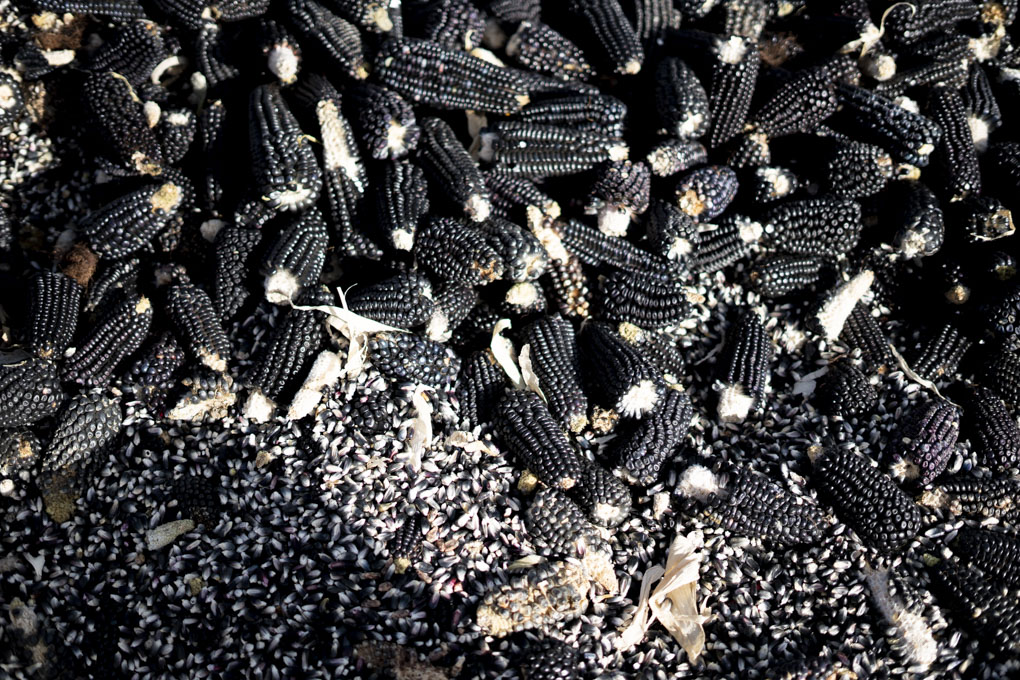
Presión
La presión es ejercida más allá de los funcionarios del gobierno norteamericano. Viene también de las grandes empresas, principalmente alemanas y norteamericanas, del mercado de semilla y del agrotóxico.
Las empresas Monsanto (EUA) fusionada con Bayer (Alemania), la Syngenta (Suiza) fusionada con la ChemChina, la Dupont (EEUU) fusionada con la Dow Chemical (EUA), y la Basf (Alemania) son las principales. Ellas se han fusionado, generando “oligopolios entrelazados que operan en todo lo largo de las cadenas de suministro agroalimentarias”, expresó Martínez.
Solamente contra la Bayer-Monsanto existen más de 125 mil demandas en el mundo por causar cáncer por el uso de glifosato.
En México, desde 2013, se ha llevado a cabo un juicio contra estas empresas que busca frenar la siembra del maíz transgénico. “Hicimos una demanda colectiva civil de acción difusa contra la siembra de maíces genéticamente modificados ante el poder judicial”, explicó Martínez, una de las representantes de la comunidad demandante contra el maíz genéticamente modificado.
Han existido diversas impugnaciones contra el cultivo de transgénico, sin embargo, el juicio principal, que demanda que se deniegue permanentemente los permisos de siembra de organismos genéticamente modificados de maíz en México, continúa.
Te puede interesar – Victoria para el maíz nativo en México, niegan amparos a gigantes transnacionales
Otra interpretación del T-MEC
La presión viene también de organizaciones vinculadas a la industria de semillas genéticamente modificadas. Un ejemplo es la declaración en el Senado de los EUA de la presidenta de la Organización de Innovación Biotecnológica, Michelle McMurray-Heath.
México debe “rescindir inmediatamente su decreto que prohíbe la importación de maíz biotecnológico y comenzar a crear un marco de edición genética que se ajuste a las normas internacionales y a los compromisos de los acuerdos comerciales”, dijo.
A pesar de la presión ejercida bajo el argumento de que los acuerdos internacionales respaldan la venta del maíz transgénicos de EUA en México, la investigadora Karen Hansen-Kuhn, del Institute for Agriculture & Trade Policy, sostiene que el decreto presidencial de México tiene “viabilidad legal en el marco del T-MEC”, el primer tratado de libre comercio de Estados Unidos que incluye disposiciones sobre biotecnología agrícola.
De acuerdo con un artículo del mismo instituto, firmado por Sharon Anglin Treat, no cabe duda de que los proponentes del acuerdo esperaban ampliar el uso de la biotecnología en la agricultura, en parte atando las manos de los reguladores gubernamentales mediante disciplinas comerciales. Sin embargo, “el texto final del tratado no restringe las opciones de la política nacional de la manera que la agroindustria y sus aliados desearían”.
Las investigadoras rescatan algunos de los artículos del tratado para justificar su argumentación. Primero, el artículo 24.3.1 del capítulo de medio ambiente reconoce el “derecho soberano de cada Parte a establecer sus propios niveles de protección ambiental”.
Segundo, el capítulo 24.15 sobre comercio y biodiversidad establece que cada parte “promoverá y fomentará la conservación y el uso sostenible de la diversidad biológica, de conformidad con su ordenamiento jurídico o político” y reconoce “la importancia de respetar, preservar y mantener el conocimiento y las prácticas de los pueblos indígenas y las comunidades locales”.
El artículo hace mención a una carta conjunta del presidente del Comité de Finanzas del Senado, Ron Wyden, y del miembro de mayor rango, Mike Crapo, en la cual piden que Estados Unidos “‘tome medidas de aplicación si es necesario’ en el marco del T-MEC porque, según afirman, ‘México no ha considerado ni aprobado adecuadamente las solicitudes de productos biotecnológicos innovadores de Estados Unidos’”, para la comercialización de su maíz en México.
Sin embargo, la sección de biotecnologia agrícola de T-MEC “preserva el derecho de México de decir ‘no’ a los transgénicos”, sostiene Hansen-Kuhn.
Eso porque, sostiene Anglin Treat en su trabajo, mientras que el párrafo introductorio del artículo 3.14 de dicha sección afirma, “las Partes confirman la importancia de alentar la innovación agrícola y facilitar el comercio de productos de la biotecnología agrícola”, esta declaración exhortatoria va seguida inmediatamente por la afirmación inequívoca y sin ambigüedades: “Esta Sección no obliga a una Parte a emitir una autorización de un producto de la biotecnología agrícola para que esté en el mercado.”
Presión por la no interferencia
La presión de los Estados Unidos y de los diversos actores vinculados a la industria de semillas genéticamente modificadas y del glifosato ha generado reacciones por parte de organizaciones norteamericanas.
Por lo menos 80 organizaciones de agricultores, trabajadores, consumidores, de salud pública, agricultura sostenible de investigación y defensa de los sistemas alimentarios estadounidenses han expresado preocupación con respecto a la interferencia continua de multinacionales de plaguicidas que buscan socavar las decisiones de México.
“Nos oponemos firmemente a cualquier interferencia de funcionarios del gobierno de los EUA o de los intereses del agronegocio en el derecho de un Estado soberano a promulgar medidas políticas para proteger la salud y el bienestar de su pueblo”, manifestaron en un comunicado.

